From Marseille to Lyon, Rennes and Toulouse, processions of people bearing Palestinian flags as well as those of the unions reflected these multiple slogans.
“I am here for the workers, it is important to rally for our rights, but also to denounce the terrible situation in Gaza and Palestine. This must stop,” said Louise, 27, in Paris.
In the run-up to the European elections on June 9, several political leaders were involved, such as Fabien Roussel (PCF) in Lille and Manon Aubry (LFI) in Lyon.
In Saint-Etienne, the head of the Socalists’ list Raphaël Glucksmann was prevented from joining the procession after paint was thrown and a few dozen activists hurled insults.
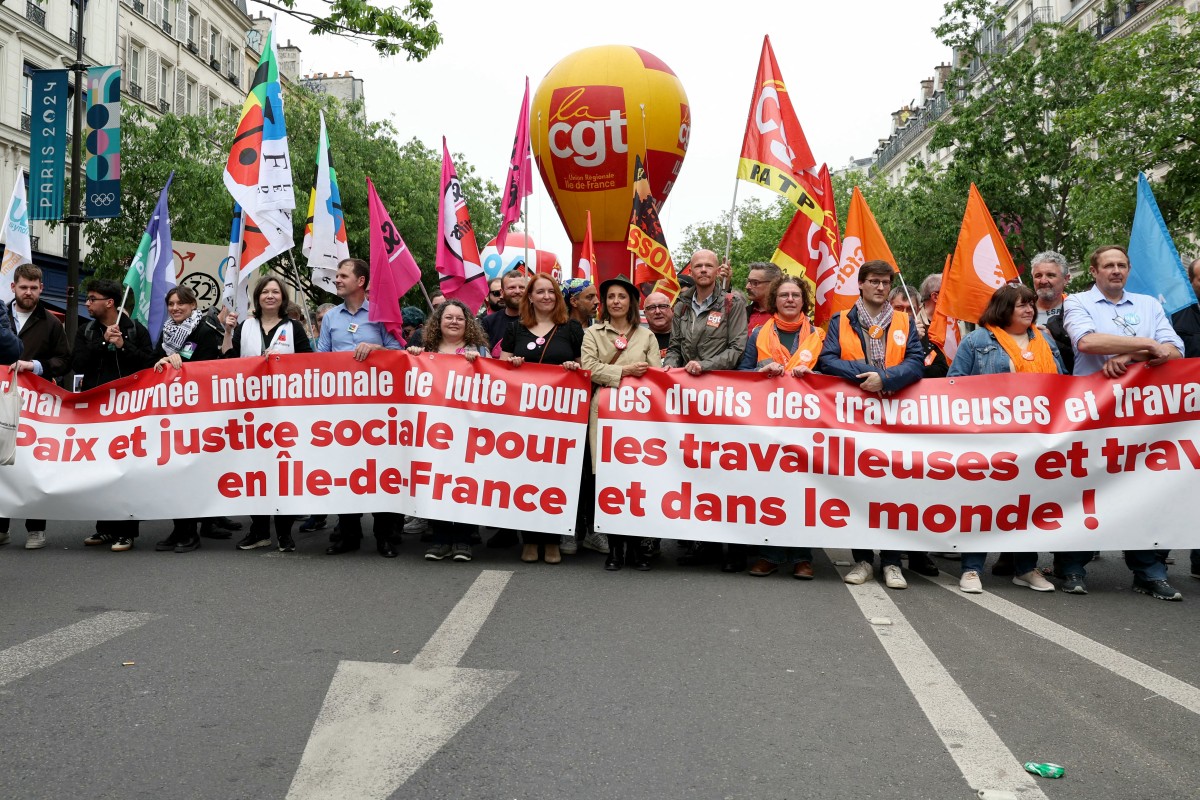
Marseille was one of the first processions to take place with between 3,000 (according to police estimates), and 8,000 (according to CGT union estimates) people taking part, marching behind a banner that read “Mobilised for peace and social progress”.
In Rennes, the demonstration attracted 1,400 demonstrators, according to the prefecture, while in Nantes, where there were several thousand people, there were violent incidents and damage to property.
Between 6,500 (police) and 13,000 (CGT) people marched in Lyon, with at least 17 people arrested due to damage and tensions with the police.
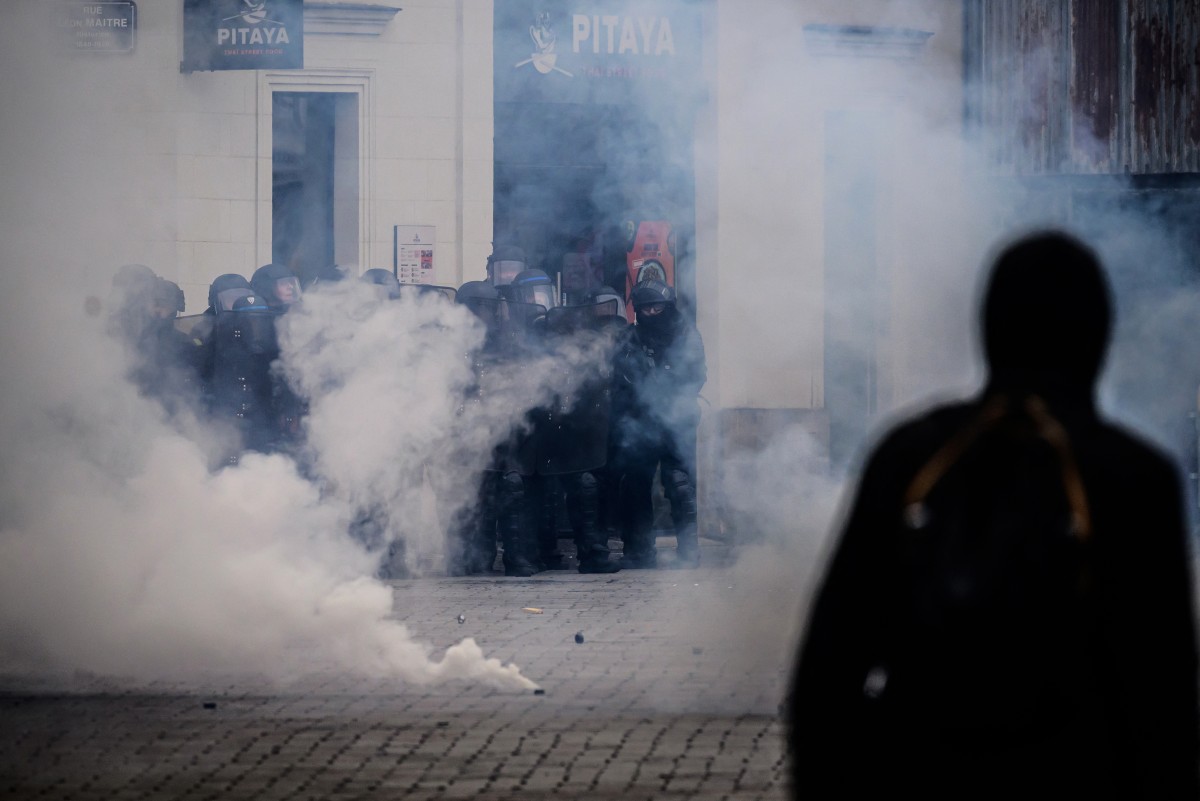
There were also between 4,000 (unions) and 1,850 (police) protesters in Bordeaux and between 3,000 and 8,000 in Toulouse.
In Lille, the procession brought together between 2,100 (police) and 4,000 people (CGT).
In Paris, the demonstration set off shortly after 2.00pm from Place de la République towards Nation, with the CFDT and Unsa unions marching alongside the CGT, FSU and Solidaires.
‘Very worrying’
In Paris, Sylvie Démange, a 59-year-old librarian, pointed out the “very worrying” social context, citing “the rise of the extreme right”, “wage inequalities” or the vertical attitude of the government.
The CGT, FSU and Solidaires, as well as youth organisations including Unef, Fage and MNL (National High School Movement), had launched a joint appeal in particular “against austerity”, for employment and wages or peace again.
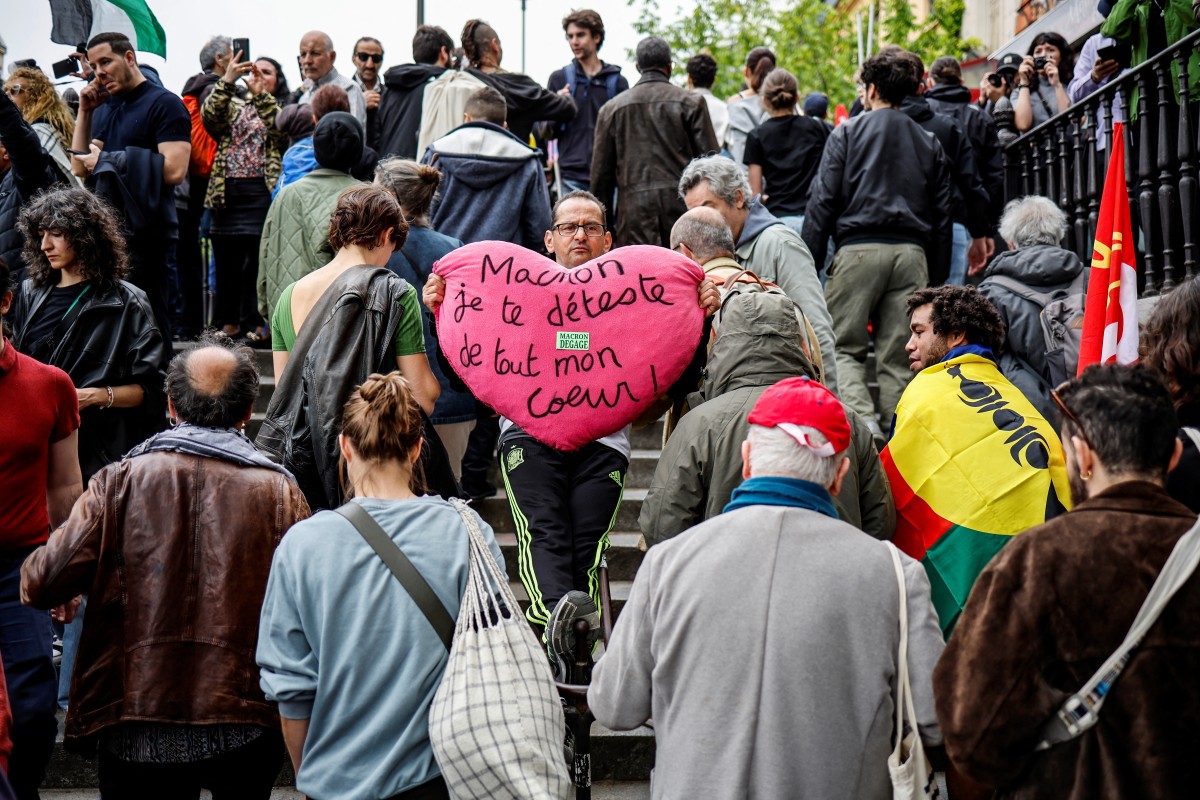
The CFDT union called for people to “join the processions organised throughout France, to demand a more ambitious and more protective Europe for workers”.
Last year, the eight main French unions (CFDT, CGT, FO, CFE-CGC, CFTC, Unsa, Solidaires, FSU) marched together against pension reform.
Nationally, 120,000 to 150,000 demonstrators were expected, according to a note from the French intelligence services seen by AFP.
This is significantly less than last year when protests united nearly 800,000 demonstrators, according to authorities, and 2.3 million, according to the CGT. In 2022, the police counted around 116,000 demonstrators and the CGT 210,000.

According to the CGT, turnout is “a little bit higher than May 1, 2022”, so “societal anger is definitely present”, said Sophie Binet.
In Paris, between 15,000 and 30,000 people were expected by the authorities, including 400 to 800 radical demonstrators.
By 2.40 pm, police had carried out checks on 917 people and arrested 25.
According to police sources, 12,000 police officers and gendarmes were to be mobilised over the course of the day, including 5,000 in Paris.

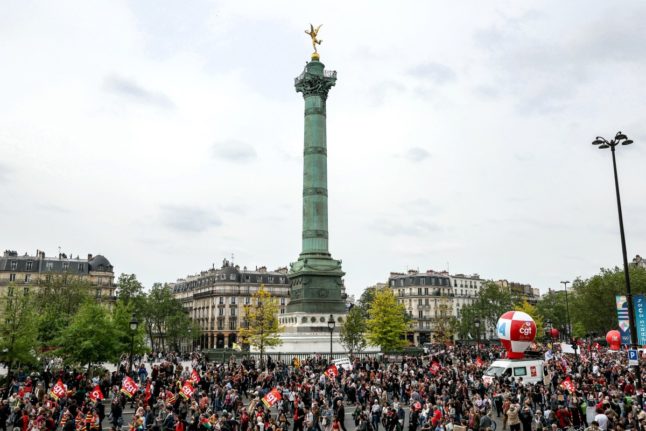
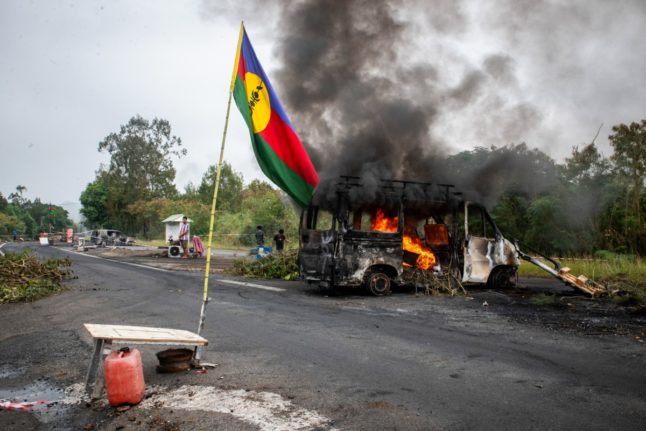
 Please whitelist us to continue reading.
Please whitelist us to continue reading.
Thousands, LOL. It was hundreds of thousands.